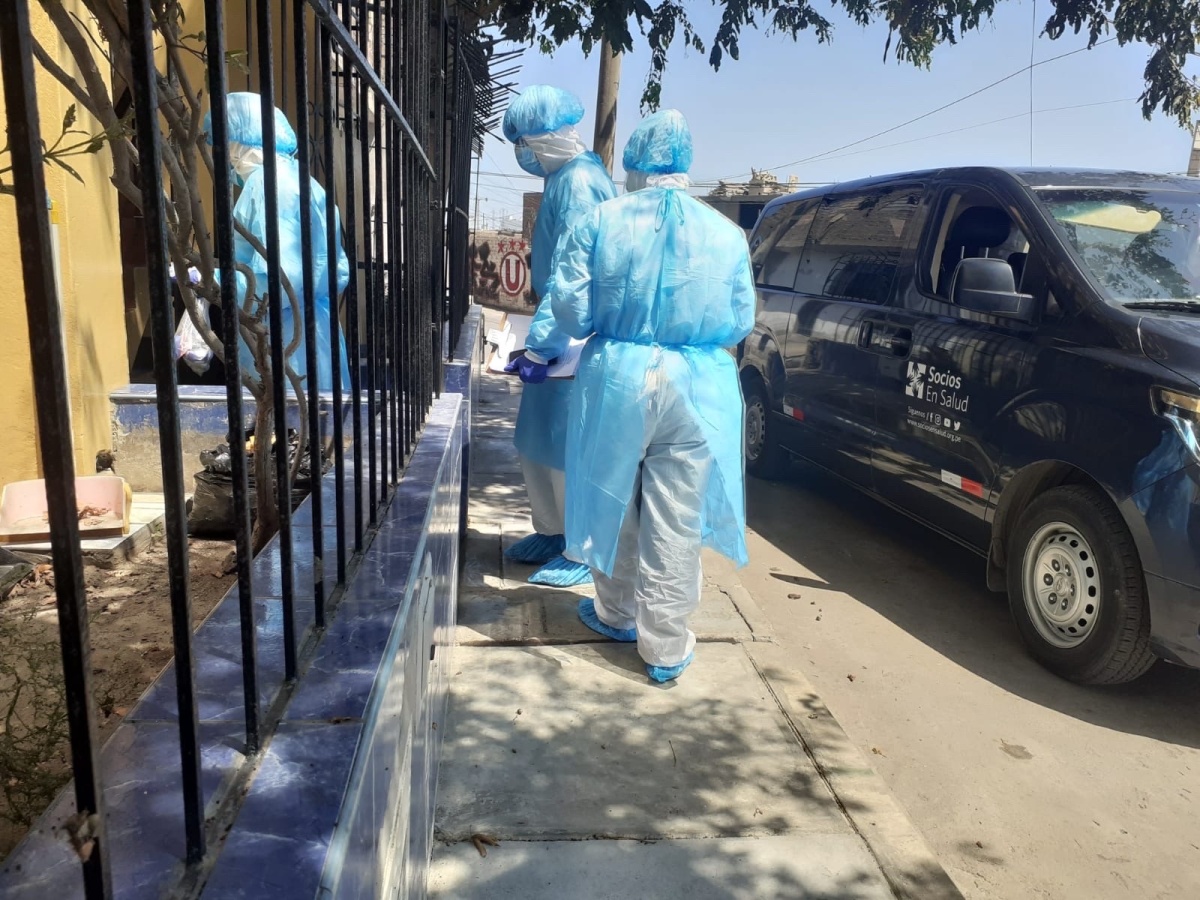Key Principles on the Ebola Response
Posted on Sep 1, 2014

Dr. Paul Farmer, a co-founder of Partners In Health, outlined the following principles regarding the response to Ebola. Farmer is also U.N. Special Adviser to the Secretary-General on Community-based Medicine and Lessons from Haiti.
It is critical that we link the emergency response to Ebola to efforts to strengthen health systems.
• The past few days have sounded the alarm and underlined the need for all hands on deck, including humanitarian groups and private-sector partners. The crisis in human resources for health is well known (according to the Liberian Ministry of Health and Social Welfare, even before the outbreak, Liberia had approximately 50 physicians working in public health facilities serving a population of 4.3 million).
• When possible, we should aspire to invest in national institutions to build local capacity (both public and private). When emergency responses include improving or building lasting infrastructure, we have a better chance to prevent the next epidemic. Following the 2010 earthquake in Haiti, we saw hundreds of millions of dollars invested in temporary facilities and short-term contracts, while the network of public hospitals and clinics across the country remains under-equipped and under-resourced.
• Less than 10% of the $6.4 billion disbursed from bilateral and multilateral funders went to Haitian institutions. Liberia only receives 3% of its development assistance through national systems.
• If the health systems of the most affected countries are not strengthened as the response proceeds, populations will not only continue to face excess mortality from treatable afflictions (e.g. complications of pregnancy, pneumonia, diarrheal disease, malaria, tuberculosis, minor trauma), but also new outbreaks of cholera and other water-borne diseases, polio, measles, and meningitis that may also pose serious regional threats.
Ebola does not need to be a death sentence. People need a “safe haven” when sick. Quarantine alone, without high-quality treatment and compassionate care, will worsen the epidemic of fear already registered across the region.
• With a “safe haven” that includes basic nursing care, and food and water, people will not shun health facilities. Much of the stigma surrounding Ebola is related to its high case fatality rate in West Africa. Ebola has not yet come into contact with modern medicine in these countries. But when protocols for the provision of high-quality “supportive care” are followed, the case fatality rate for Ebola may be lower than 20%. Most sites have not been able to implement these standards to date, due to severe staffing constraints and shortages of supplies—including personal protective equipment for health workers.
• For the critically ill unable to take fluids by mouth, treatment protocols should include intravenous fluid replacement, and the ability to treat concurrent bacterial and parasitic infections. Such units will need basic diagnostic laboratory capacity, including serum chemistries, complete blood counts, and basic measures of hepatic and renal function.
Ebola Treatment Units need to be linked to community-based care and community health workers need compensation.
• Rapidly securing the space for and building many more properly laid-out Ebola Treatment Units is critical. We are currently meeting less than 20% of the need for beds in Liberia; the situation is similar in the other two most affected countries. As these facilities are scaled up to meet the level of need, and as referral systems are put in place, community health workers should be trained and equipped to prevent, diagnose, and treat Ebola and other more common afflictions (supplies would likely include personal protective equipment, mobile phones for reporting and referral, oral rehydration salts, antibiotics, antidiarrheals, antimalarial, and paracetamol.) Community health workers, in order to serve these vital functions, will need not only adequate training but also remuneration.
New tools are urgently needed for the prevention, diagnosis, and treatment of Ebola.
• While the case fatality rate can be dramatically reduced with supportive care, we urgently need more efficient diagnostic tests, an effective vaccine, and specific therapies targeting the virus itself.
• The evaluation of promising new tools will come from partnerships between private and public stakeholders.

